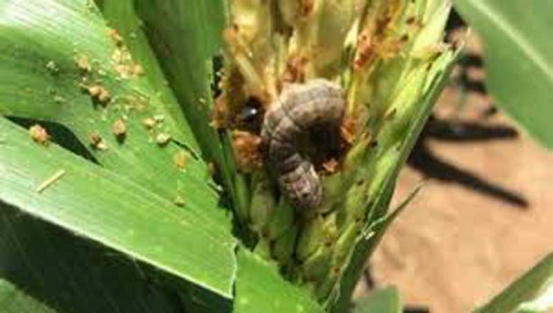×
The Standard e-Paper
Fearless, Trusted News
 As fall armyworms continue to wreak havoc on farms across the country, experts are warning that the damage could worsen the current food crisis.
As fall armyworms continue to wreak havoc on farms across the country, experts are warning that the damage could worsen the current food crisis.
A report by the State Department of Agriculture had initially indicated that a field survey conducted in March revealed that the armyworms had invaded at least 10 counties, including Trans Nzoia, Bungoma, Kakamega, Uasin Gishu, Nandi, Kericho, Baringo, Nakuru and Busia.